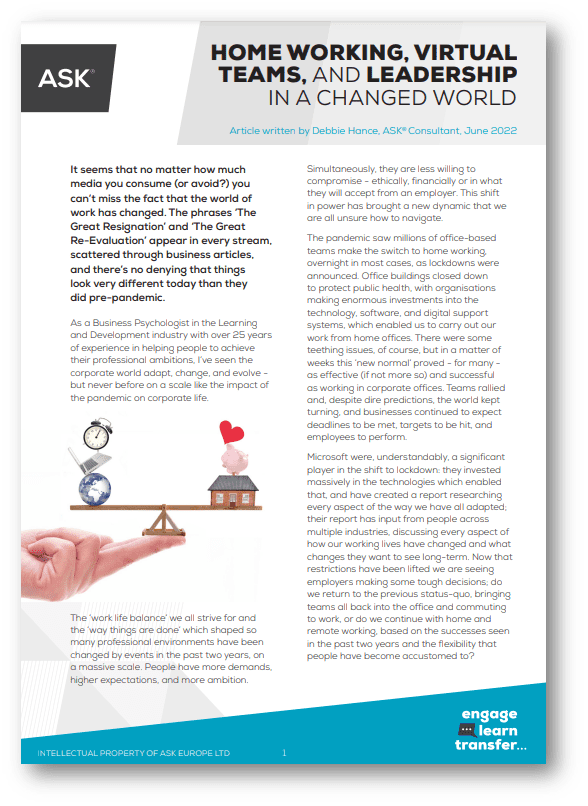Character eats personality for brunch!
The development industry has forever been obsessed by its nomothetic approach to personality development - that is, trying to produce general laws which apply to all people
This ‘scientific’ approach has enabled the growth in popularity of reductive tools, designed to help us understand and ‘get’ other people.
At the other side of the scale is the idiographic approach to personality, which focuses on the dynamics of our behaviours and our individual uniqueness – this can be considered the ‘art’ of personality.
Gordon Allport’s work in this area culminated in the 1980’s, terming the ‘Big 5’ personality traits. Suddenly each of us had a genetically enforced marker on 5 identified spectrums:
- Extraversion
- Neuroticism
- Conscientiousness
- Agreeable
- Open to experience
Research on the ‘Big 5’ over the last 40 years has constantly reinforced the hereditary and genetic factors, and the little movement over one’s age span across all 5 spectrums. Although there are many examples of an individual’s personality completely changing over their lives, this is not a common trend, and is often explained by an inspirational event or other influences such as illness, injury or significant trauma.
So how limited are we to be any different to our inherited personality markers?
We have known colleagues to use the badge of their low extraversion as justification (or excuse) to get out of after-work social events; “guys, I would love to attend but – as my MBTI showed – these sorts of things just sap all my energy, and you wouldn’t want to do that to me, would you?”
We are far more complex as beings than can be explained or categorised by the 5 big personality traits. We have hardware and software which integrate to create a unique human being. The hardware is our brain, which can be said to work at two speeds – a conscious, analytical system (slow) and a subconscious, intuitive system (fast). And then we have 3 different pieces of software; I have already mentioned personality traits – the other two are motivational drives and moral intuitions:
Our motivational drives
- To acquire
- To bond
- To comprehend
- To defend
Moral intuitions – basic ideas of moral behaviour
- Care
- Fairness
- Authority
- Loyalty
- Liberty
- Sanctity
It’s the combination of our personality traits, motivational drives and moral intuitions all being processed through those fast and slow systems which develops the characters we really become.
In a recent study looking at which leadership habits added the greatest ROI for a company, the 4 keystone character habits were;
- Integrity
- Responsibility
- Forgiveness
- Compassion
Leaders who displayed these character habits achieved 5 times the ROI than other companies in the research (Return on Character, Fred Kiel 2015).
So, the next time you are looking to develop your people, remind yourself of what is more important; their hereditary traits, or the key character habits that are proven to deliver results.
If you are interested developing your people into fully integrated leaders, contact our team today to find out more: call 01234 757575 or email hello@askeurope.com



